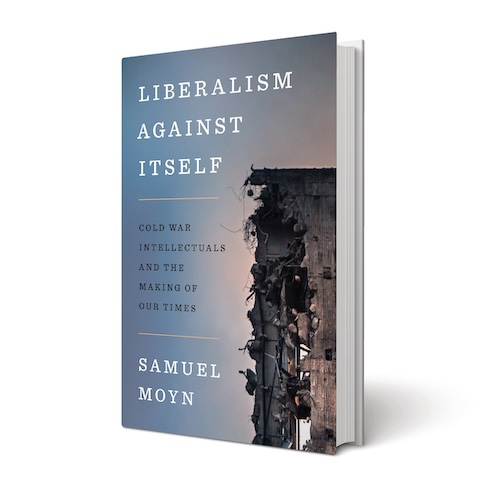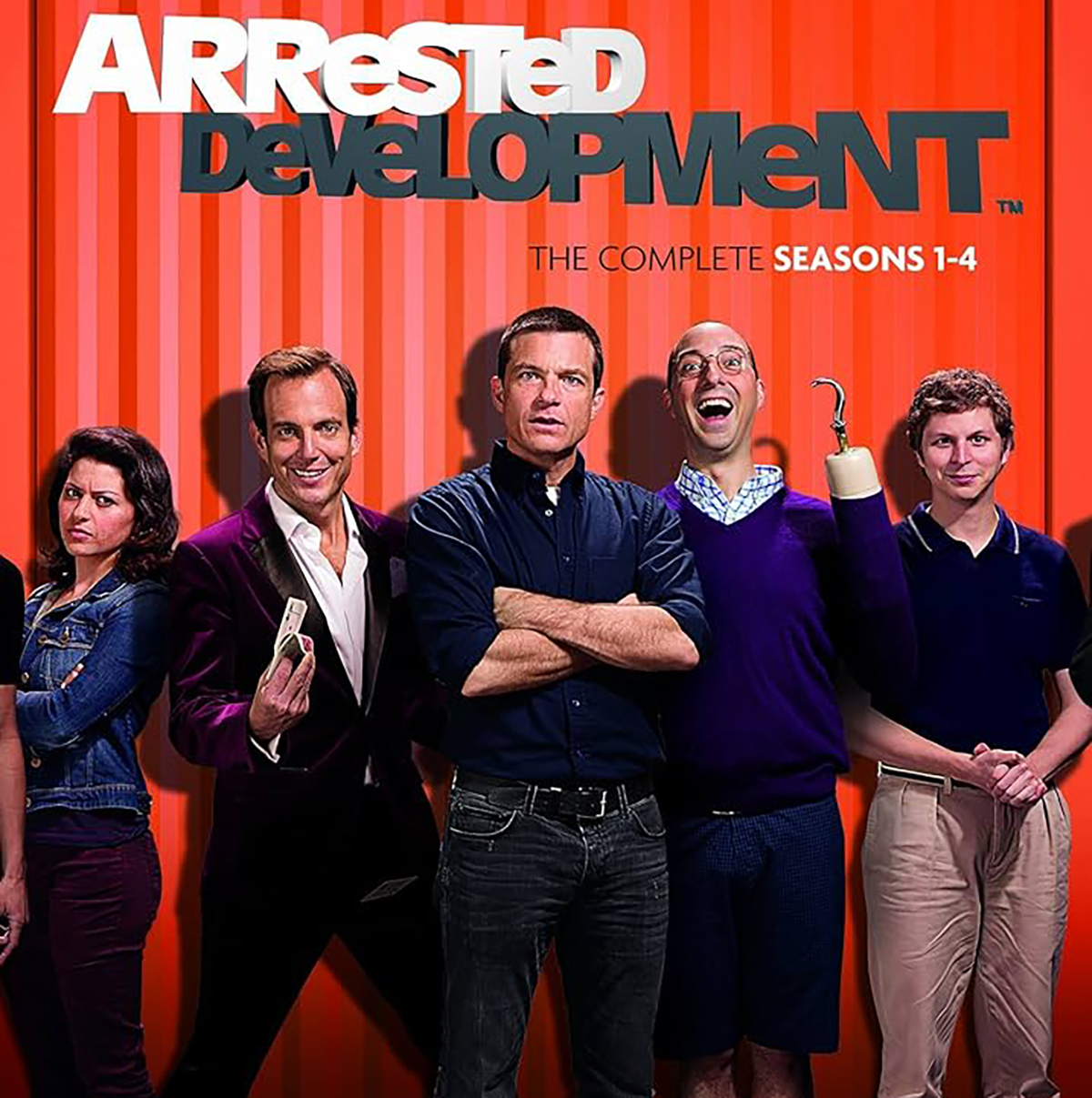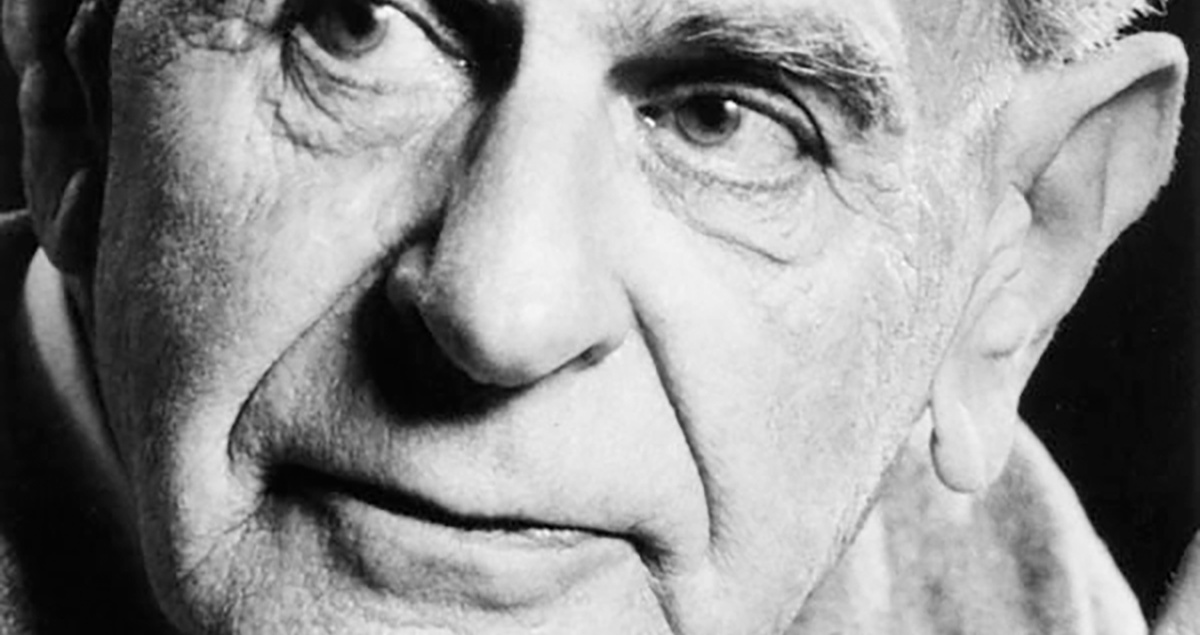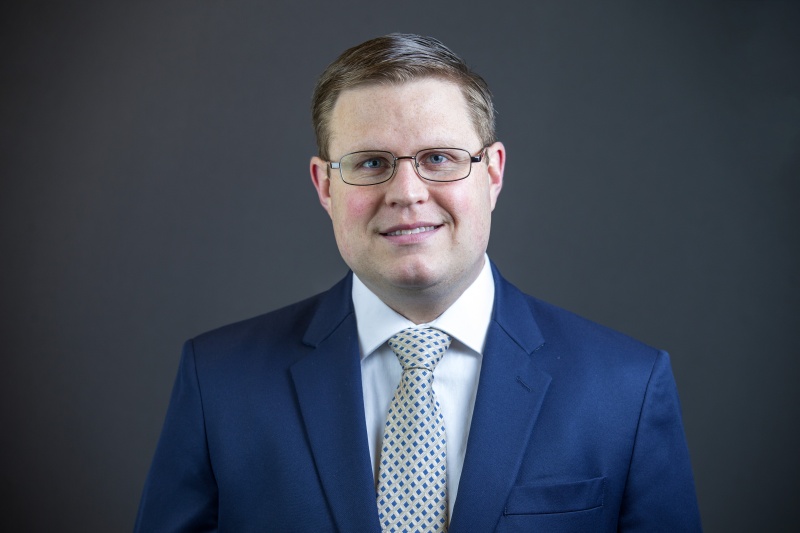The utopian mind, Roger Scruton wrote in The Uses of Pessimism, is remarkable not merely for being detached from reality but for taking a certain pride in consciously rejecting reality. Utopians “see the world differently. They are able to ignore or despise the findings of experience and common sense, and to place at the centre of every deliberation a project whose absurdity they regard not as a defect but as a reproach against the one who would point it out.” Being unrealistic is not a flaw but a marker of one who has cast off the ugly chains of the world and committed himself to a pure and righteous world—even if it doesn’t exist.
Samuel Moyn is angry with some of 20th-century liberalism’s most celebrated thinkers for allowing reality to derail a commitment to endless Progress.

By Samuel Moyn
(Yale University Press, 2023)
Samuel Moyn’s Liberalism Against Itself is not exactly a utopian book. It is, however, what we might call an anti-anti-utopian book. And as such, it certainly exemplifies Scruton’s observation, for its very structure is an extended “reproach” against certain liberals who, chastened by the experience of the early 20th century, abandoned liberalism’s unbounded faith in Progress and continual emancipatory political projects. Moyn, a Yale law professor, has developed a reputation as a left-wing gadfly, critical of the standard liberal politics on offer in America today. Here, he tries to show where it all went wrong.
Each of Moyn’s six chapters is devoted to a 20th-century thinker who embraced, in some form or another, what Judith Shklar (herself one of those featured) termed the “liberalism of fear.” Shklar is the only intellectual profiled whom Moyn does not seem to loathe, and he uses her first book, After Utopia, as a conceptual guide. The others—Isaiah Berlin, Karl Popper, Gertrude Himmelfarb, Hannah Arendt, and Lionel Trilling—each come in for their 30 lashes with a wet noodle for having turned liberalism into a more cautious and realistic approach to politics. (And, of course, much to the chagrin of Moyn, Shklar’s thought also matured with age, coming to resemble the rest of the Cold War crowd.)
Shklar is the only intellectual profiled whom Moyn does not seem to loathe.
These thinkers witnessed gross atrocities, totalitarian government, and spiritual degradation all perpetuated in the name of progress and enlightenment. They responded by abandoning liberalism’s belief in the limitless potential for human improvement and reframed it in a more defensive posture. This typically meant a more Augustinian understanding of human nature, a greater emphasis on individual liberty (Berlin’s famous “negative liberty”), an appreciation of the institutions necessary to guard against concentration of power, and in some cases at least, a belief in the need for individual moral responsibility. Correspondingly, they abandoned ambitions for “collective emancipation” or global transformation through concerted political action, seeing firsthand how such aims could go awry.
As a simple account of this intellectual development, Moyn’s book is useful if unspectacular. Each thinker is approached from a particular angle, often focusing on how he or she engaged with an important figure in the history of liberal ideas (Popper’s rejection of Hegel, Himmelfarb’s rehabilitation of Acton, and Trilling’s engagement with Freud, for example). This helps develop one of the book’s more interesting secondary themes: the adjustment of the liberal canon, and more importantly, the establishment of an “anti-canon” of modern thinkers seen to be forerunners of revolution or totalitarianism. Acton was in, and so was Freud. Hegel and Rousseau were out. If the book had been meant to be a straightforward intellectual history, this would have been an interesting line of examination with which much fruitful engagement could be had.
But it is abundantly clear that the purpose of this book was not simply to serve as an intellectual history but to pass judgment on that history. This reconceptualization of liberalism was a terrible development, Moyn tells us—“catastrophic” even. But why, exactly, were the Cold War liberals so wrong? And why was it so catastrophic? That is less clear. Despite maintaining a scolding tone throughout, there is little substantive defense of Moyn’s judgment on these thinkers. For the most part, as Scruton suggests, he seems simply to assume that it is self-evidently good for a political thinker to maintain a detachment from reality and to continue to engage in what Moyn calls “high-minded fantasies.” Indeed, “acceptance of ‘reality,’” he warns, can “become its own delusion.”

To the extent that there is a (mostly implicit) argument behind Moyn’s scathing assessment, it is that the Cold War liberals overreacted. He grudgingly acknowledges the historical events that were behind the shift in thinking. “In the middle of the twentieth century,” he writes, “there was a lot to be glum about” (a tastefully understated way to recognize the physical and spiritual devastation of the Holodomor, thought police, and gulags). But when at first you don’t succeed, try, try again: more radical ideologies may have usurped the language of perfectionism and historical progress, and many liberals may have been caught up in that revolutionary enthusiasm, but that doesn’t mean we should run away from the ideas entirely. Just because the Soviet Union took up the mantle of History and Progress and it all went horribly wrong doesn’t mean we can’t still do it—just better. True enough. Just because another driver barreling down a street at a hundred miles per hour crashes and dies, doesn’t mean I can’t do it—just better. But I might want to tap the brakes and think about it all the same.
Moreover, if this is indeed the main argument underpinning the normative assessment, one would think Moyn would offer a clear alternative that shows how liberalism can embrace the values he holds without the totalitarian consequences. But Moyn’s alternative liberalism is vague—merely the unarticulated inverse of what he attacks. This should not be surprising. As Scruton observed, utopianism is often more about hating what is than about articulating what ought to be: “Those who advocate [utopias] rarely describe them, or touch on their nature only fleetingly in the course of denouncing the realities that impede their arrival.”
It’s clear enough that Moyn thinks liberals should retain a romantic hopefulness in Progress and enlightenment operating through history. The state should be our friend. Redistribution is the key to true liberty, aiming at “collective emancipation.” His is a liberalism that drinks deeply from the well of socialism and Marxism. But he does not offer many specifics or explain how such values should be embraced if you hope to do so without totalitarian flirtations. And he even acknowledges, in a humble confession to those slightly more radical than he, that the earlier, pre–Cold War form of liberalism he admires was actually “compromised to the core by its civilizational self-conception and racialist parochialism.” To whom, then, shall we go?

There’s nothing inherently wrong with this lack of a clear alternative, of course. One is entitled to write simply a critical book. Much of Moyn’s scholarship seems to take this approach, and debunking sacred political cows (like his work on human rights) can be a worthwhile endeavor. But in this case, it leaves the reader with little more than the kind of argument captured in a scene from Arrested Development that has since become a common internet meme: No, it has never worked for anyone else. “But it might work for us!”
All this adds up to a book that is but an angry reproach to those who do not have Moyn’s noble hope. The chapter on Arendt particularly gives this impression, since Arendt is not generally considered a “liberal.” Moyn acknowledges this, but insists that she shares some of the characteristics he is focused on and so can reasonably be included. But the reader might wonder whether the primary reason for her inclusion is that Moyn simply doesn’t like her and wants the opportunity to berate her for being, at one point, an ardent supporter of Zionism, despite her skepticism of other “violent emancipation” movements in the decolonizing world. (The fact that Arendt quite emphatically turned away from Zionism for its failure to recognize the specific hope she had is presented as a sort of afterthought that “is only fair to acknowledge” but that does not dampen the charge of hypocrisy.)
For those who share Moyne’s prior commitments, there may be some cathartic relief from reading such a book. But for readers who do not, there is not much with which to engage. They will fundamentally disagree, but those disagreements are largely on matters outside the scope of the text. Nevertheless, a conservative might take something away from Liberalism Against Itself.
Liberalism Against Itself serves as a mirror image of recent intellectual developments on the right.
First, the book might remind us that “liberalism” is far from a monolith and need not manifest as a radicalism with which conservatives can have no truck. Undoubtedly, there are differences between conservatives and Cold War liberals on several matters: human anthropology; the origin and maintenance of Western institutions of governance; the nature of and relationship between the values liberals and conservatives might nominally share, including liberty, pluralism, social order, and even the very Western political tradition they see themselves as defending. And certainly, some of Moyn’s specific criticisms are well-earned. (Whatever Hegel’s merits and demerits, for instance, it’s clear that American thinkers—liberal and conservative—tend to dismiss him, as Popper did, based on gross oversimplification.) But on the points Moyn is most concerned with, the Cold War liberals will, to many conservative readers, come off looking better than the author. They may have been prone to simplistic answers and neat systems, but they are certainly people with whom we can share a civilization.
Second, Liberalism Against Itself serves as a kind of mirror image of recent intellectual developments on the right. Several commentators—and even Moyn himself—have pointed to the utility of reading his book alongside Patrick Deneen’s Why Liberalism Failed. Postliberal conservatives like Deneen tend to treat liberalism as a monolith—a consistent strain of thought beginning at the Enlightenment (or the Reformation, or with Duns Scotus, or Ockham …) and naturally unfolding according to its internal logic down to today. As noted above, Moyn is a corrective on this point.

More striking, however, is the similarity between Moyn and the Deneenites. The postliberal conservatives would be unlikely to appeal to the Enlightenment or to capital-P Progress, but like Moyn, they see history as a canvas on which one can, through intentional collective action, draw a more noble and just political order than the one that has been passed down to us. Moyn’s complaint that the Cold War liberals abandoned hope in a politics of progress and perfectionism echoes the postliberal call for a more robust “political imagination” that abandons “the defensive crouch.” Both have even been known to lambast “tyrannophobia.” They would undoubtably disagree on the form utopia ought to take (a recurring problem for political optimists), but Moyn and the postliberal conservatives share a very similar style of politics.
As I have argued elsewhere, Deneen and his fellow travelers on the right are adherents of what Michael Oakeshott described as the “politics of faith.” Moyn is also lamenting a “decline of political faith” (the subtitle of Shklar’s After Utopia, Moyn’s guidebook). Perhaps this convergence suggests that the matter of faith in politics is a more important intellectual dividing line today than the nominal division over “liberalism.” Indeed, it is this dividing line that pits liberalism—and conservatism—against itself.




